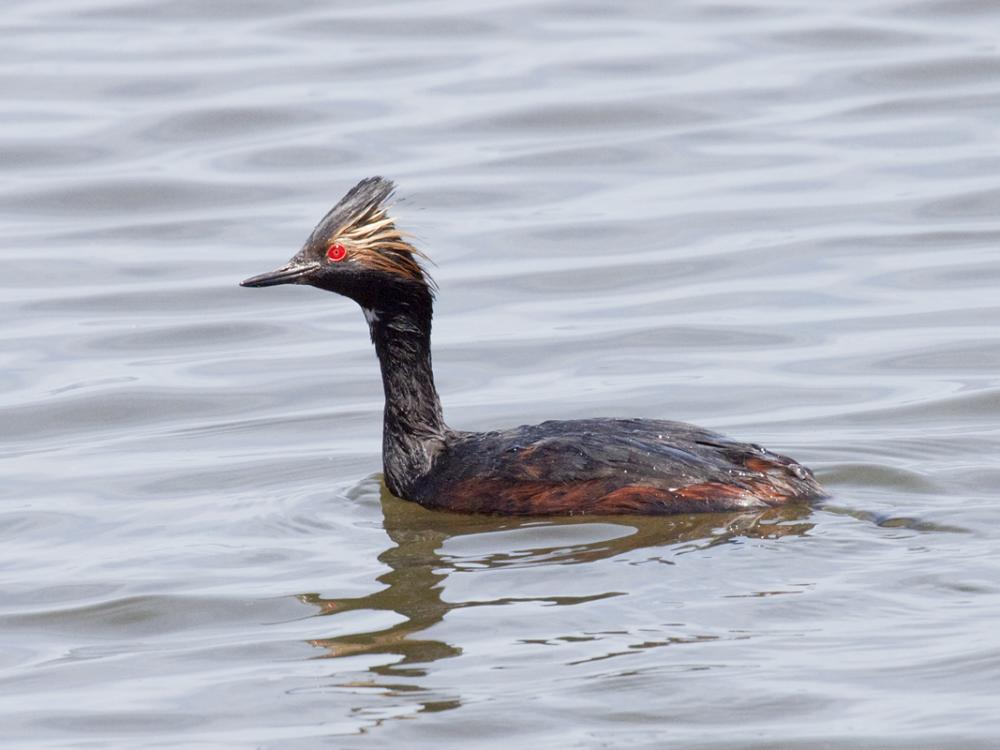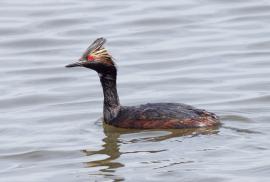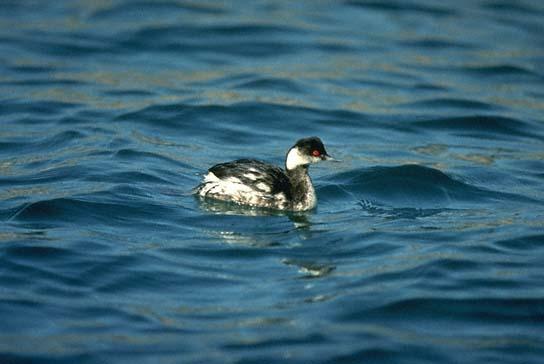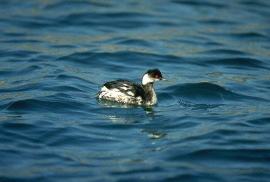Guide to Boreal Birds
Overview
In the fall most Eared Grebes migrate southwestward to the Pacific, but the species also winters on open water in the Southwest and as far east as Texas and a few turn up each year on the East Coast. Unlike the Horned Grebe, which supplements its diet with small fish, the Eared Grebe feeds almost exclusively on aquatic insects and small crustaceans. These birds are highly gregarious, not only nesting in large, dense, and noisy colonies but also assembling in large flocks in winter.
Description
12-14" (30-36 cm). A small, slender-necked, slender-billed grebe. In breeding plumage, black head and back; golden ear tufts; black crest. In winter plumage, dark gray above, white below; neck dusky. Similar in winter to Horned Grebe, but chunkier, and bill appears slightly upturned, sides of face smudged with gray, whitish patch behind ear.
Voice
On breeding grounds, frog-like cheeping notes.
Nesting
3-5 bluish-white eggs, stained brown, laid on a floating mass of vegetation in a marsh. Usually nests in dense colonies.
Habitat
Marshy lakes and ponds; open bays and ocean in winter.
Range/Migration
Breeds from British Columbia, southern Manitoba, and Dakotas south to California and New Mexico. Winters on Pacific, Gulf, and Atlantic (rare) coasts, occasionally on open water in interior Southwest and Texas. Also in Eurasia.





